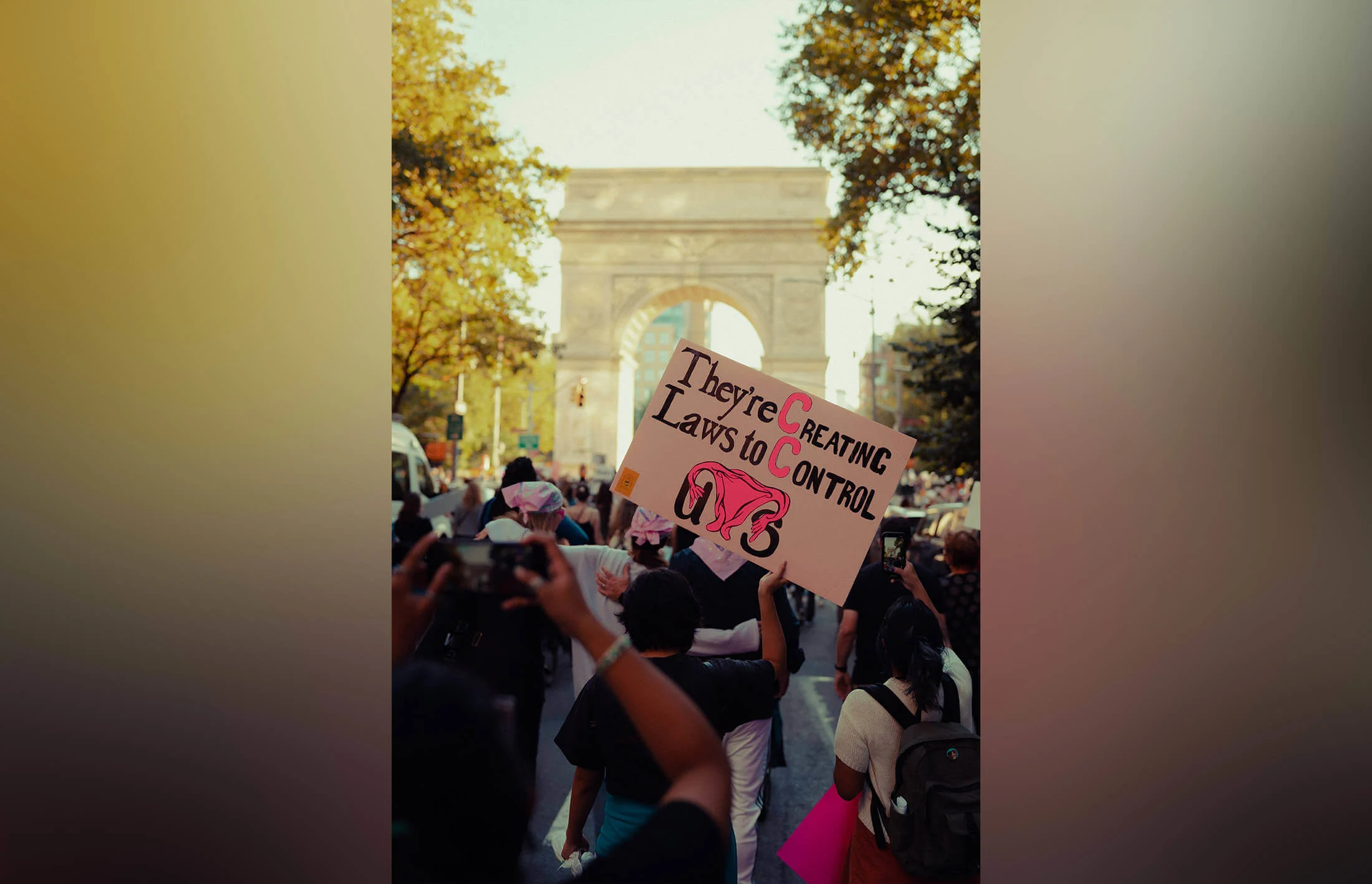What is needed for democracy? Is it free and fair elections? Competent, trustworthy politicians? Robust and just institutions and systems? Nay. If democracy is government by the people, for the people, then the people must be informed. Not only must they understand politics, but they must understand their roles and power as citizens.
In the absence of such understanding, we might as well leave our political system in the hands of corruption, distrust and distortion. We require the means to hold the government to account - by which I mean knowledge of our political system and how best to hold our representatives to account.
2022 has shown us that young people are readily engaged in political issues that matter to them, whether they be the ability of women to make their own free choices or the issues of gender identity. This is contrasted by the commonly held view (particularly by older generations) that young people are either uninterested or disengaged from politics. This is untrue. Apparently young people are engaged with political happenings, but that this goes beyond voter turnout at elections, and manifests itself in public demonstrations and protests. It raises the question. Why don't they vote?
One opinion has it that young people lack a stake in society, i.e., that not having children, property et cetera, is what leads to them refraining from voting. A valid reason? I think not. Young people have a huge stake in society, due to, by and large, their role as that society's future. The real problem is that they are not educated about this stake they have in society or that they actually have ownership rights to their politics.

As an A-Level politics student myself, I understand the country's failure to equip young people with the means by which they may be part of politics. The fact that my A-Level is the first, if only, formal political education throughout my entire time in secondary education is reason enough to suggest reform. Furthermore, the way in which politics is taught in schools does not provide students with the full picture. Too often is politics treated like an abstract subject or a science - which, to a large extent it is. However, in treating it so, we are ignoring the role that the very students in the classroom play. We need education that incorporates the role and responsibility that citizens have and must exercise.
Readers already familiar with my borderline obsession with education reform will know that I have recently proposed the idea of a choice-based approach to education, a system in which every student, regardless of their personal circumstances, is provided with a government-financed voucher that guarantees them an education.
Ensuring that ‘political education’ is treated as a core part of students’ learning, then we can look forward to a future where, with the reforms I shouted about in my last article, a renaissance of not only education but politics occurs. The idea of a ‘National Agency’ springs to mind when talking about a system of education that harnesses students’ freedom of choice. Making sure that they will still learn about English, Maths and Science, such an Agency can also safeguard the future by ensuring that students are politically educated too!
We could even think of 'citizenship' as part of the 'core' subjects. These would effectively be integral socclasses in which students can learn about politics and the society in which they live through a lens that focuses on their roles as citizens and government-makers. Understanding the power they possess as a collective to enact change is a key step forward in the democratisation of politics and the rise of a truly informed citizenry, which is knowledgeable about and engaged in politics from a young age.
By ensuring that we are all engaged citizens - if not political junkies - we can look to a future where the role of government is perhaps reduced or limited - not that they're doing much already. This would pave the way for bottom-up government as opposed to a bureaucratic, overzealous administration. Elinor Ostrom, the first woman to receive the Nobel prize in economics, argued that knowledgeable citizens engaged in collective action are a prerequisite for democracy. No democratic system can exist unless citizens are knowledgeable about how they can cooperate to solve their local problems in spite of their conflicting interests. For example, the current battle between NIMBYs and YIMBYs over housing development and affordability could be solved by giving local communities voting rights over whether construction should take place. Communities more inclined to development could give their rights to developers, and more opposed - or, NIMBY - communities could retain theirs.
Perhaps, if political knowledge was made more accessible, the people of the United Kingdom could look to themselves as decision-makers - taking politics into their own hands, instead of using politicians. The potential effects of such an education and the accumulation of knowledge among the future electorate are too many to count. Informed citizens may increase turnout at elections, political engagement and tolerance (of religions, ideas and perspectives).
By reforming political education, we may hope to change the dynamics of power in the United Kingdom - ensuring that true political power resides with the people. We can look to a much brighter future where the phrase 'government by the people and for the people' holds true, and one in which we really take ownership of our roles as citizens. We, the people.
Written by
Archie RankinA young, pen-wielding Liberal with intellectual curiosities in all things politics, with huge appetites for history, philosophy and economics. Committed to making a positive difference for young people in my role as Associate Editor & Innovation Lead, constantly seeking out new ideas and approaches to drive innovation and progress.
Read next
I'm fed up with 'Forever'. Where's our Übermensch?

Sion Marsh
Why don't we vote? Let's address the elephant in the room

Sean Ryan
Scottish Independence: who will make the unionist case for young people?

Linden Grigg
Weekly emails
Get more from Archie
The Fledger was born out of a deep-seated belief in the power of young voices. Get relevant views on topics you care about direct to your inbox each week.
Write at The Fledger
Disagree with Archie?
Have an article in mind? The Fledger is open to voices from all backgrounds. Get in touch and give your words flight.
Write the Contrast

